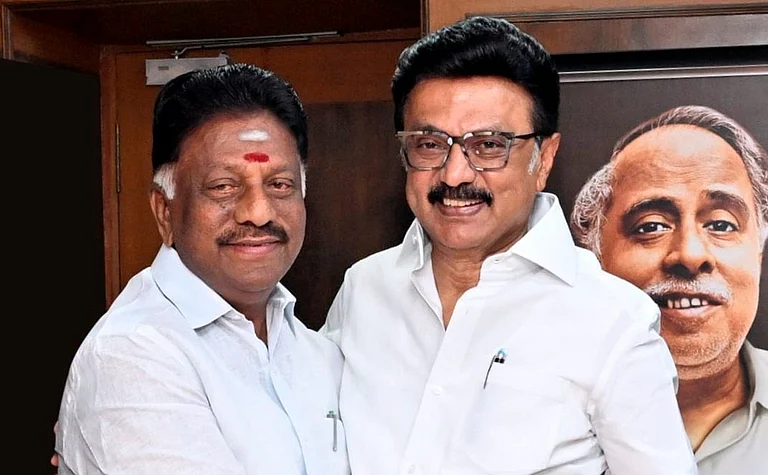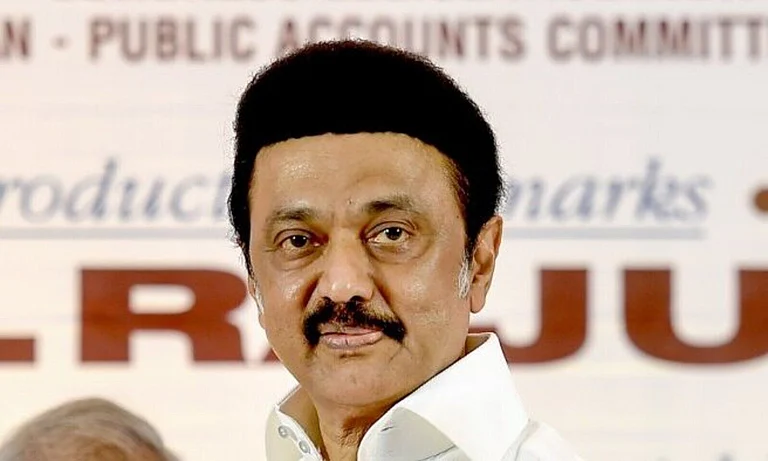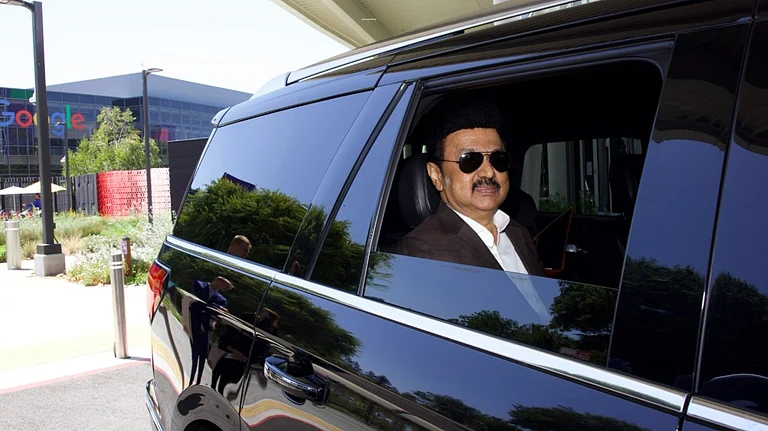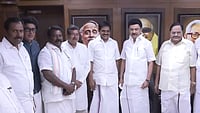O Panneerselvam’s exit from the National Democratic Alliance (NDA) in Tamil Nadu, following reports of Prime Minister Narendra Modi’s “refusal” to meet the three-time chief minister, has cast doubts on the BJP’s prospects of forming a grand alliance ahead of the Assembly election in early 2026.
OPS, as O Panneerselvam is known, is said to have felt sidelined by the BJP leadership. His recent meeting with Chief Minister MK Stalin, over a morning walk, has stirred speculation that he will join the Dravida Munnetra Kazhagam (DMK), or enter an electoral understanding with it. But the Prime Minister’s party, the Bharatiya Janata Party (BJP), is still trying to create space for itself through strategic alliances that can capitalise on the crisis within the All India Anna Dravida Munnetra Kazhagam (AIADMK), the party last in power in the state from 2016 to 2021. Panneerselvam, who was expelled from the party, was seen as a staunch loyalist of J Jayalalithaa, the AIADMK supremo and former chief minister who passed away in 2016, leaving the party divided among factions.
It’s uncertain yet what Panneerselvam’s exit from the NDA would have on the BJP’s state-level ambitions. As the AIADMK disintegrated, the BJP had hoped to emerge as the DMK’s primary opponent in the state. But despite the grandstanding, it could not really penetrate Tamil Nadu politics. What has surprised many is that the AIADMK has also continued to weaken, primarily since it lacks versatile leadership. The BJP had hoped to end the DMK-AIADMK binary in Tamil Nadu politics by taking the place of Panneerselvam’s party.
Some observers believe the exit will have a debilitating effect on the BJP’s attempts to challenge the DMK front, especially in South Tamil Nadu. Panneerselvam, according to them, holds decisive sway over the Thevar community, a decisive force in the region, particularly in the Theni, Virudhunagar and Thirunelveli districts.
Although the AIADMK got a drubbing in the 2021 election, the majority of the Thevar vote remained with it. Fifteen of the 44 seats that the party scored in that election were from South Tamil Nadu. The Thevar community accounts for 10-12 per cent of the Tamil population. If Panneerselvam continues to hold sway over this community, his exit would create trouble for the BJP.
But a political activist Outlook spoke to said Panneerselvam is a “spent force”, and his influence over the Thevar group stands significantly dented of late. “He can probably make a difference in two or three seats. It is not going to have any impact. Over the last few years, AIADMK has gradually receded, and the BJP is attempting to assume the position as the principal opposition party in the state,” the activist said, not wishing to be named.
Panneerselvam served as caretaker chief minister of Tamil Nadu twice, once after Jayalalithaa decided to step down after a special court’s strictures against her in a disproportionate assets case in 2014 under the Prevention of Corruption Act. He also became chief minister after her demise, gaining prominence in the AIADMK due to his loyalty to Jayalalithaa.
The AIADMK and BJP contested the last assembly election in 2021 as allies, but could not stop the DMK from retaining power.
The BJP Tamil Nadu appointed Annamalai K as its chief in 2020, he vehemently attacked the founders of the Dravidian Movement, forcing the AIADMK to sever ties with the saffron party.
Edappadi K Palaniswami took control of the party, while Panneerselvam formed a group that allied with the BJP in the 2024 Lok Sabha election, though it failed to have an impact. He had perhaps hope to continue his alliance with the BJP in next year’s election as well. But the BJP, desperate to make inroads into the state, now seems to think Edappadi’s AIADMK would be more useful than OPS.
“The reason why Prime Minister refused to give audience to Panneerselvam despite his repeated attempts is attributed to the condition laid by Edappadi, EPS’s bête noire. Edappadi aims to solidify his position as a member of the NDA in Tamil Nadu, and is said to believe that EPS’s presence at the forefront will impact this,” another political observer told Outlook.
Though OPS’s exit will bring relief to Palaniswami, the friction within the NDA is likely to persist. The statement by Union Home Minister Amit Shah that there will be a coalition government after the election was quickly countered by Palaniswami, who said there is no question of a coalition government in Tamil Nadu.
“The NDA in Tamil Nadu is a makeshift arrangement,” said the same political observer. “Even the BJP and the AIADMK know it. The BJP aims to increase its presence in the next assembly with the help of a Dravidian party and eventually take over the second position in the state. Since AIADMK has no option left, it is aligning with it,” they said.
Though the DMK won a landslide victory in Tamil Nadu in the 2024 election, bagging all 39 Lok Sabha seats, that election also signalled there was space for a third political party in the state: the two Dravidian parties saw a decline in their combined vote share after dominating the politics of the state since decades. The DMK garnered 46 per cent of the popular vote while AIADMK’s vote share shrank to 23 per cent. Taken together, both Dravidian parties still got 70 per cent of the votes—a sizeable chunk, but still the lowest in their history. The BJP got about 12 per cent of the votes, while actor Seeman’s Naam Tamilar Katchi (NTK) secured eight percent of the votes.
The launch of actor Vijay’s Tamizhga Vetri Kazhagam (TVK), the space for non-Dravidian parties might grow even more. The BJP hopes to gradually capitalise on this trend.






























